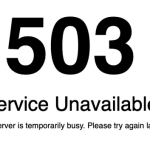
Top Tips on Choosing Domain Names
When meeting a new website, it is the domain name that people get into contact first — even before getting the chance to look at the UI or content housed under that name. It is basically your website’s shot at making a positive first impression on your would-be visitors. It is also your chance to build a name that can be easily recalled. Hence, one should choose the domain name with as much care as other factors.
What is the Domain Name?
First, consider the difference between a domain name, a URL, and a website name.
Domain names are essentially the “shorthand” addresses that are typed on your visitors’ address bar. On the other hand, the URL (the Universal Resource Locator) is the address to which the domain expands to when typed. For example, to go to your site, the visitor simply types “yourcoolsite.com”. This then directs the browser to the URL or the actual location of the site in the Internet: “http://www.yourcoolsite.com/home.asp”.
On the other hand, the website name is what you call your site in the content. The domain “yourcoolsite.com” could redirect into your site named “My Site Like No Other”, which is quite unlike the domain name in the first place. Looking at this definition, one can easily see how it is not the URL nor the site name that can make the most impact to visitors — it is the domain name, the same one they try to remember when they want to get back to your site.
Domain Name = Website Name
Most people know that the obvious choice to go is to name the domain after the website’s name (and vice versa). This is, after all, the easiest way to establish name recall. If people want to go to a site entitled “Your Cool Site”, they would not have to think what they need to type to get there. From a business standpoint, this is also practical — if someone gets the domain yourcoolsite.com ahead of you, profit that would have otherwise gone to you will be redirected to the other site.
Given the lightning-fast pace of competition in the field of domain names nowadays, however, it can be difficult to find an available domain name for you to take. Rival big companies may always be on the lookout for potential names it can buy, therefore making it unavailable for your use. There are also times when a private person has beaten you to the punch. If this is the case, you can try buying the name off — simply check out the domain’s “whois” information, and reach out to the current owner to see if they are willing to sell it. Take note that domain names sold in this manner usually command a higher price.
Some newborn businesses opt to go the other way around — they find any domain name and name their sites after it. This may seem awkward, but if you do not really have a brand yet then this might be a good way to go. It is also easier on the budget.
This name match is, however, not a strict rule and variations between the site name and the domain name can always exist. One of the most common reasons is when you have a very long site name, one that would be impractical to type in an address bar. If you have a very long business name, such as “Smith, Jameson, and Merfenwiszch Law Firm”, you cannot reasonably expect visitors to type that in every time, which leads us into the next topic…
Short and Meaningful
Abbreviating the above name can be tricky. For one, you would not want to have a domain name called “sjmlf.com” — even though it is easy to type and remember, it does not spark any brand recognition as it cannot provide any context at all (unless, of course, your business has built a brand under that abbreviation). The obscurity can be just as bad as lack of brevity.
As another general guide, domain names should always provide a context into the service that you are trying to provide. A name such as “SJMLaw.com” would be a better fit, as it contains the keyword to the site’s content, not just an unrelated jumble of letters.
Of course, be creative — there are times when you just have to create your own short words by tweaking existing dictionary terms.
In Defense of Length
But then again, it can be very hard to find available short and meaningful names. If you must use a longer name, make sure that it is easy to remember — something like “SmithLawAssociates.com”. There are certain longer domain names that have the advantage of sticking more closely simply because they are made up of real words.
Another advantage inherent to a longer domain name is the fact that it can be more visible to search engines since it contains your site’s keywords as well.
In the end, it’s up to you whether you want your domain name to be either discoverable or brandable. Shorter names have the potential to make a brand when done right. Longer names, on the other hand, may not stick long enough in the mind but may be turned up more easily through a Google search.
To Hyphen, or Not To Hyphen?
This is another common argument — should you get “Smith-Law-Associates.com” or stick to the example above?
One thing to consider is that it can be easy for visitors to forget a hyphen when typing in the domain name. Others may take advantage of this by buying the domain name without the hyphens — catching a portion of those who wanted to go to your site (though of course, you can do this, too). Also, when they tell about your site to friends, these hyphens tend to get left out. From a user standpoint, many words separated by hyphens can be very annoying to type.
On the plus side, you may consider getting hyphens when you are very keen on SEO — search engines can distinguish the keywords on your domain name when hyphens are at play. Because of this, your site can end up higher on the search results. Getting a hyphen might also be the closest alternative you have when the non-hyphenated version is no longer available for purchase.
“My”, “The”, and Plurals: Domain Name Suggestions
When you try searching for domain names that have already been bought, you will most often be presented with alternate versions of the name. Let’s say that you wanted CoolSite.com, you will get “MyCoolSite.com”, “TheCoolSite.com”, and “CoolSites.com” as common suggestions.
While it is up to you whether or not you will settle for these, always remember that these can only be considered “good” domain names when you use the complete form in the promotion of your site. If you take “TheCoolSite.com” and promote your domain as only “Cool Site”, then the name will be a bad choice.
On the other hand, it would be hard to recommend taking the plural form of your site, as there is a much higher possibility the visitors will forget to type it. A good example of this is the 1999 eToys vs etoy dispute — many who wanted to purchase from the Internet toy giant got taken to the art group’s website instead.
The Question of the Extension
Another thing to think about is the shortest part of the domain name — the extension. Many people may see that their preferred name is no longer available in the .com, and yet are available in .org, .net, and country-specific TLDs (Top Level Domains).
Despite what others think, a country-specific TLD may actually be a good idea if you are talking about a service that caters to your local community. It will actually be beneficial, since the visitors would readily see that the entity they are dealing with is a local one. Especially if you are dealing in e-commerce, people would like to transact with a local business as much as possible.
As for .net and .org, they are more and more growing into commonplace domain names. They are especially used by those who think that the domain name before the extension beats everything else in importance, settling for these when .com is no longer available. Furthermore, if you are running a non-profit organization, .org is a popular choice — a good example is the web site of the Apache web server found on apache.org.
This is not to say that .com is not important, however — common browser algorithms use .com as the first attempt at completing a domain name when the visitor just typed in the body. That means if a .com competitor of your site exists, then the users will be delivered to that instead. If you have a non-.com extension, always make sure to emphasize it so visitors will always get to the right site.
The Bottom Line
Despite the many options available in choosing a domain name, the most important step is to get the domain even before starting your website endeavors. One of the most common mistakes is retrofitting the name of your business (or, in general, any site) in favor of a badly mismatching domain name. This can cause you to lose your branding. At the same time, changing your domain name in the future can cause a lot of difficulties for your visitors — and may ultimately cause you to lose them.
Finally, as much as possible, make your domain name so that it is not similar to any other website — you do not want a stronger competitor stealing your business.














